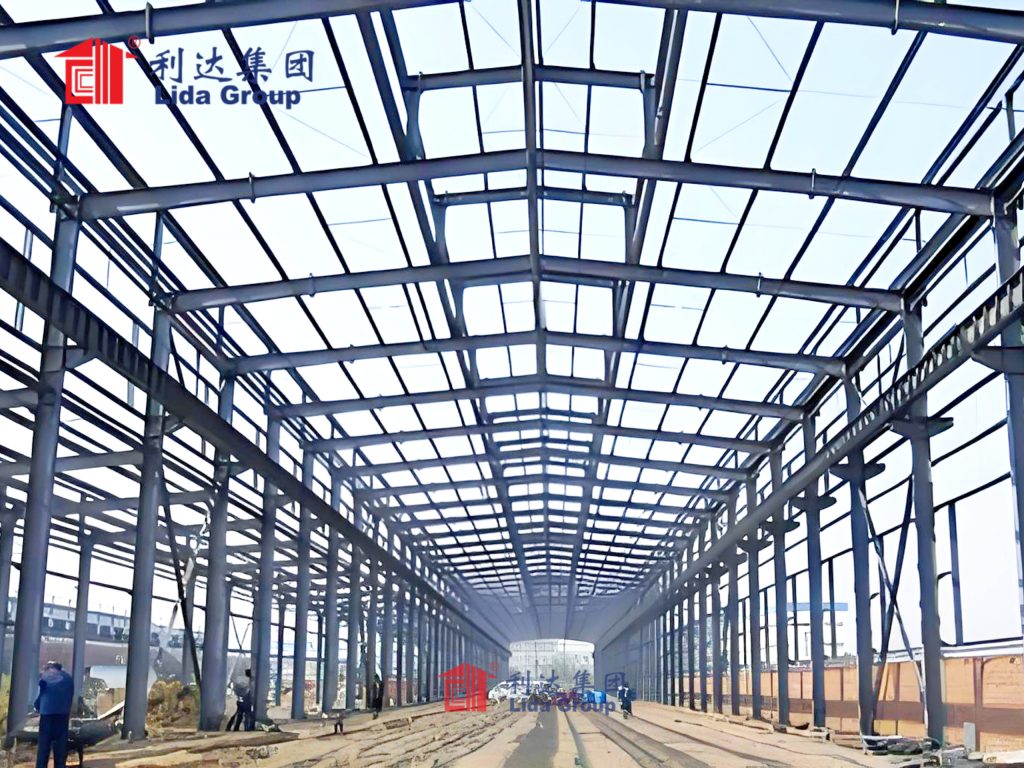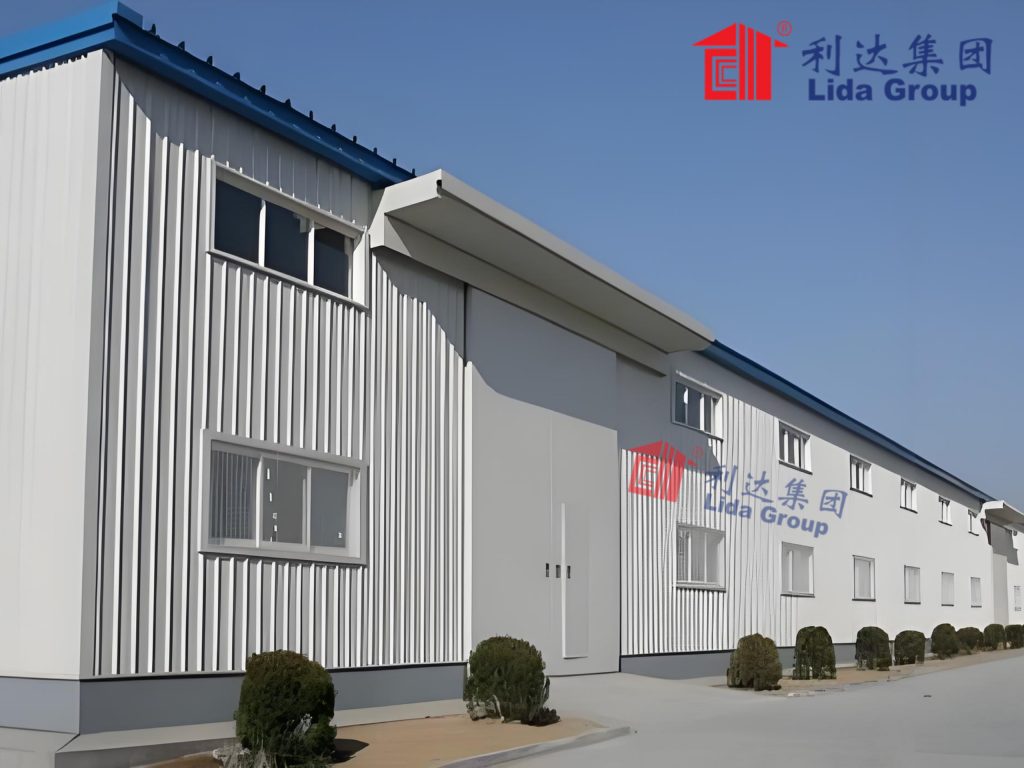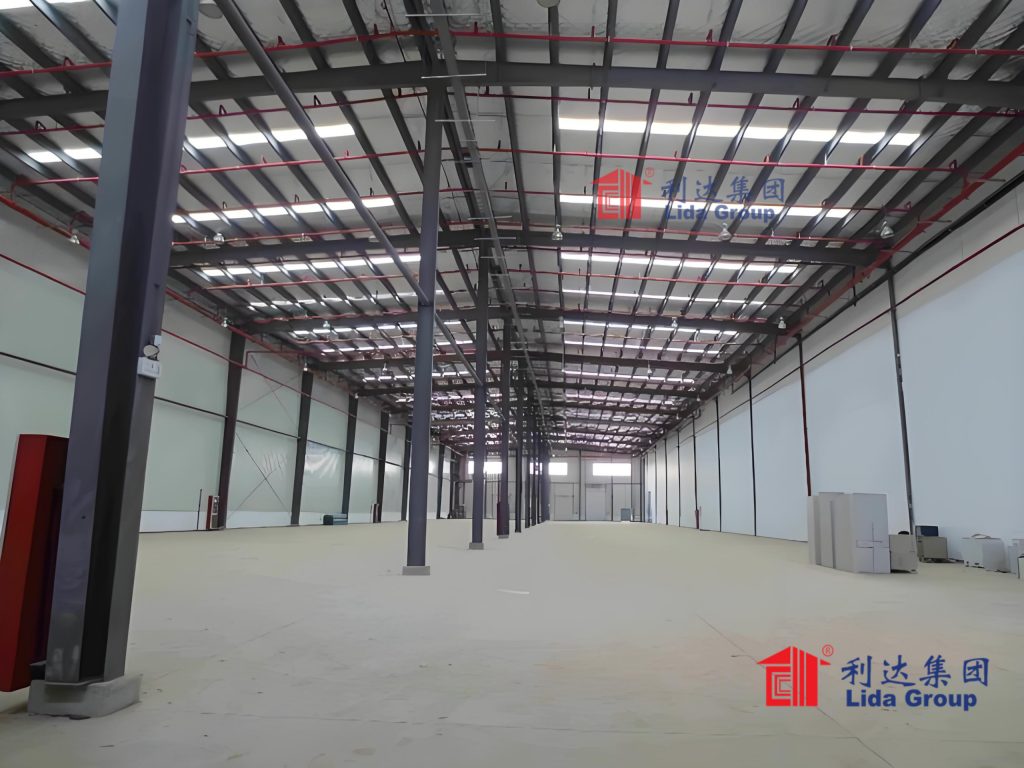A recent technical paper from Lida Group analyzed applications of their pre-engineered standardized steel structural solutions in developing specialized agricultural and farming facilities resilient to increasing climate stresses. As extreme weather events intensify worldwide threatening global food security, the paper examined how modular, reusable buildings facilitate climate-smart practices buffering impacts on vulnerable rural livelihoods.
Case studies highlighted greenhouse complexes in Yunnan adapted for high-value tropical fruit and vegetable production. Galvanized steel portal frames with cable bracing support double-glazed polycarbonate panels optimized for shade, thermal regulation and ventilation according unpredictable monsoonal patterns. Interior curtains modulate microclimates for temperature-sensitive cultivars as sensors activate fogging, fans and blackout curtains automating environmental controls.
Modular designs segment greenhouses of varying heights for zoned microclimates alongside packing, storage and cooling infrastructure. Prefabricated components assemble rapidly on concrete foundations elevating facilities above seasonal flooding while integrating ground source heat pumps into reversible hydroponic and aquaponic systems. Results saw year-round harvests tripling yields and incomes sustainably within integrated pest management and water recycling systems.

Another application focused on dairy farms in Inner Mongolia incorporating livestock shelters into integrated power, waste and fodder production. Circular walled compounds composed of prefabricated steel barns, milking parlors and worker lodges shelter Holstein cattle between rotational pastures. Manure digesters generate biogas fueling combined heat and power cogenerating excess renewable energy credits while treated effluent irrigates fodder crops.
Precise environmental controls within windowed clearspan barns optimized herd productivity year-round. Hygienic materials eased automated milking and centralized cooling/packaging expanded niche processed dairy markets amid growing consumption. Modular designs readily resized or relocated barns tracking optimal pastureland as grasslands transformed under a changing climate.

The paper also analyzed poultry facilities across Southeast Asia vulnerable to intensifying heat waves and typhoons. Projects featured galvanized cold-rolled steel framing supporting mechanically fastened sandwich panel walls enclosing environmentally controlled broiler, layer and breeder operations. Horizontal and vertical air distribution optimized thermoneutral zones for bird welfare.
Self-contained utilities powered by on-site solar arrays maintained operations independently of grid disruptions common during disasters. Construction using standard components reduced complex building assemblies vulnerable to high winds. Rapid modular expansions matched intensification supporting millions additional livelihoods while curbing pandemic disease risks from free-range systems.
Across all applications, the technical paper demonstrated standardized pre-engineered steel infrastructure optimized layouts, mechanization, environmental controls and efficiency. Modular designs readily resized operations in step with climate impacts and intensifying policies around biosafety, animal welfare and environmental protections. Reusable structural components reduced waste improving whole-life sustainability versus temporary field shelters reliant on unpredictable seasons.

Prefabricated solutions integrated smart building technologies from sensors to variable rate irrigation unlocking precision to maximize productivity sustainability within finite land and water resources. Research showed climate-resilient agriculture increasingly depends on controlled, specialized environments facilitated by reusable standardized building infrastructure efficiently assembled from pre-engineered components readily adapted worldwide.
In conclusion, the analysis reinforced modern agriculture’s dependence on predictive, resilient protected cultivation through standardized modular infrastructure. As extreme weather patterns transform vulnerable rural economies, pre-engineered solutions like Lida Group’s promote climate-smart agricultural practices crucial to global food security through specialized controlled environments efficiently assembled and resized in step with a changing climate.

Related news
-
White paper evaluates potential to mass produce customizable steel-framed building panels, roof trusses and walls optimized for Lida Group's modular construction methods.
2024-08-29 14:45:01
-
Journalists profile scalable innovations enabling more communities to access dignified, relocatable living quarters through Lida Group's convenient install container prefab units.
2024-08-27 17:04:46
-
Official commends Lida Group's portable prefab construction as practical alternative to tents providing rapidly installed shelter near remote work sites.
2024-08-27 16:19:18
contact us
- Tel: +86-532-88966982
- Whatsapp: +86-13793209022
- E-mail: sales@lidajituan.com


